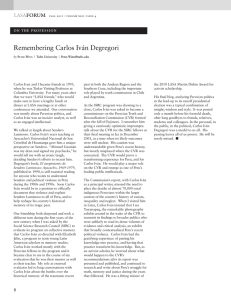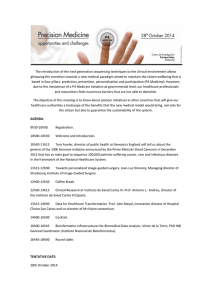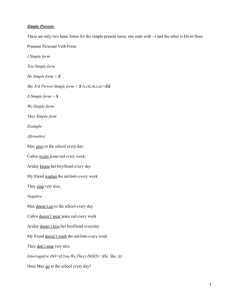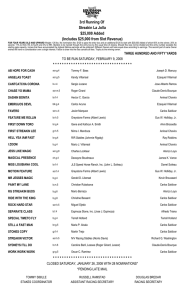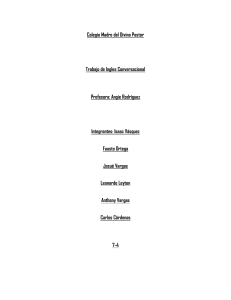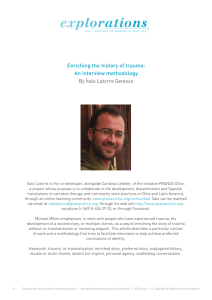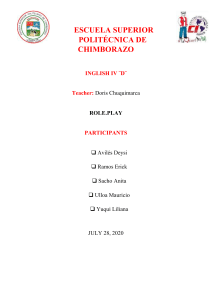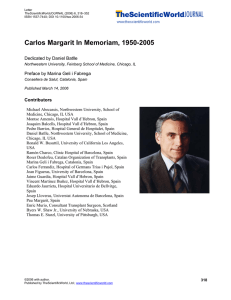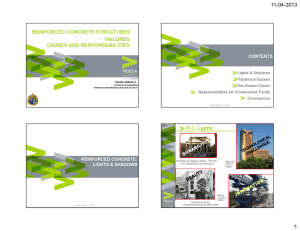A Way of Living in the World: Carlos Iván Degregori
Anuncio
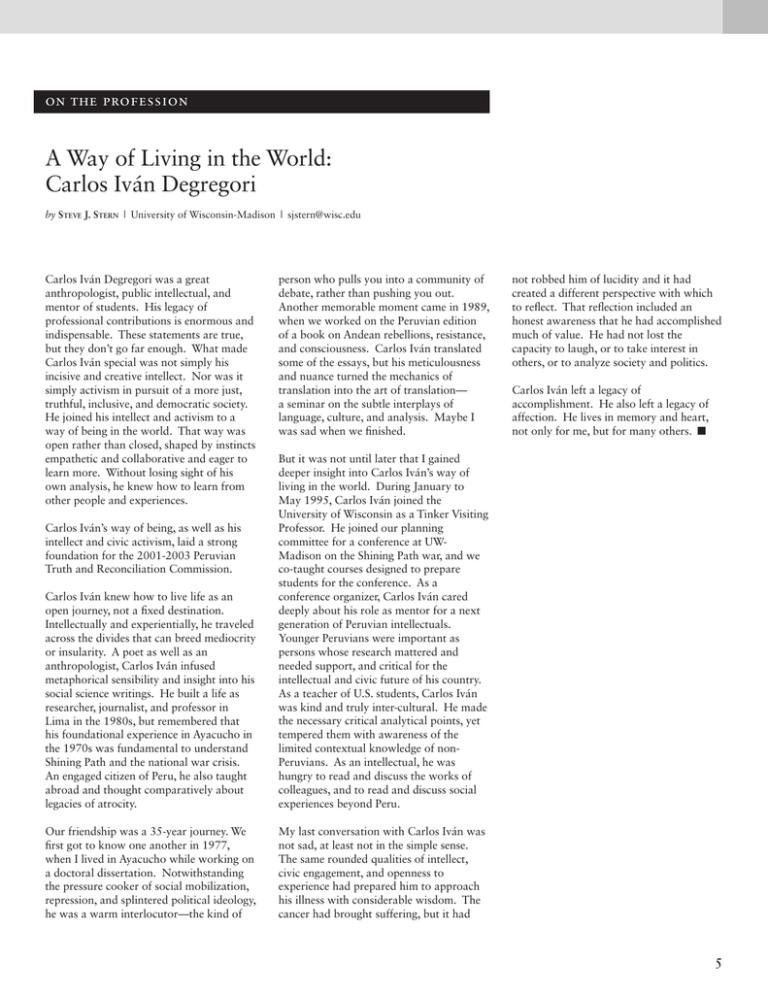
on the profession A Way of Living in the World: Carlos Iván Degregori by Steve J. Stern | University of Wisconsin-Madison | [email protected] Carlos Iván Degregori was a great anthropologist, public intellectual, and mentor of students. His legacy of professional contributions is enormous and indispensable. These statements are true, but they don’t go far enough. What made Carlos Iván special was not simply his incisive and creative intellect. Nor was it simply activism in pursuit of a more just, truthful, inclusive, and democratic society. He joined his intellect and activism to a way of being in the world. That way was open rather than closed, shaped by instincts empathetic and collaborative and eager to learn more. Without losing sight of his own analysis, he knew how to learn from other people and experiences. person who pulls you into a community of debate, rather than pushing you out. Another memorable moment came in 1989, when we worked on the Peruvian edition of a book on Andean rebellions, resistance, and consciousness. Carlos Iván translated some of the essays, but his meticulousness and nuance turned the mechanics of translation into the art of translation— a seminar on the subtle interplays of language, culture, and analysis. Maybe I was sad when we finished. Carlos Iván knew how to live life as an open journey, not a fixed destination. Intellectually and experientially, he traveled across the divides that can breed mediocrity or insularity. A poet as well as an anthropologist, Carlos Iván infused metaphorical sensibility and insight into his social science writings. He built a life as researcher, journalist, and professor in Lima in the 1980s, but remembered that his foundational experience in Ayacucho in the 1970s was fundamental to understand Shining Path and the national war crisis. An engaged citizen of Peru, he also taught abroad and thought comparatively about legacies of atrocity. But it was not until later that I gained deeper insight into Carlos Iván’s way of living in the world. During January to May 1995, Carlos Iván joined the University of Wisconsin as a Tinker Visiting Professor. He joined our planning committee for a conference at UWMadison on the Shining Path war, and we co-taught courses designed to prepare students for the conference. As a conference organizer, Carlos Iván cared deeply about his role as mentor for a next generation of Peruvian intellectuals. Younger Peruvians were important as persons whose research mattered and needed support, and critical for the intellectual and civic future of his country. As a teacher of U.S. students, Carlos Iván was kind and truly inter-cultural. He made the necessary critical analytical points, yet tempered them with awareness of the limited contextual knowledge of nonPeruvians. As an intellectual, he was hungry to read and discuss the works of colleagues, and to read and discuss social experiences beyond Peru. Our friendship was a 35-year journey. We first got to know one another in 1977, when I lived in Ayacucho while working on a doctoral dissertation. Notwithstanding the pressure cooker of social mobilization, repression, and splintered political ideology, he was a warm interlocutor—the kind of My last conversation with Carlos Iván was not sad, at least not in the simple sense. The same rounded qualities of intellect, civic engagement, and openness to experience had prepared him to approach his illness with considerable wisdom. The cancer had brought suffering, but it had Carlos Iván’s way of being, as well as his intellect and civic activism, laid a strong foundation for the 2001-2003 Peruvian Truth and Reconciliation Commission. not robbed him of lucidity and it had created a different perspective with which to reflect. That reflection included an honest awareness that he had accomplished much of value. He had not lost the capacity to laugh, or to take interest in others, or to analyze society and politics. Carlos Iván left a legacy of accomplishment. He also left a legacy of affection. He lives in memory and heart, not only for me, but for many others. n 5

